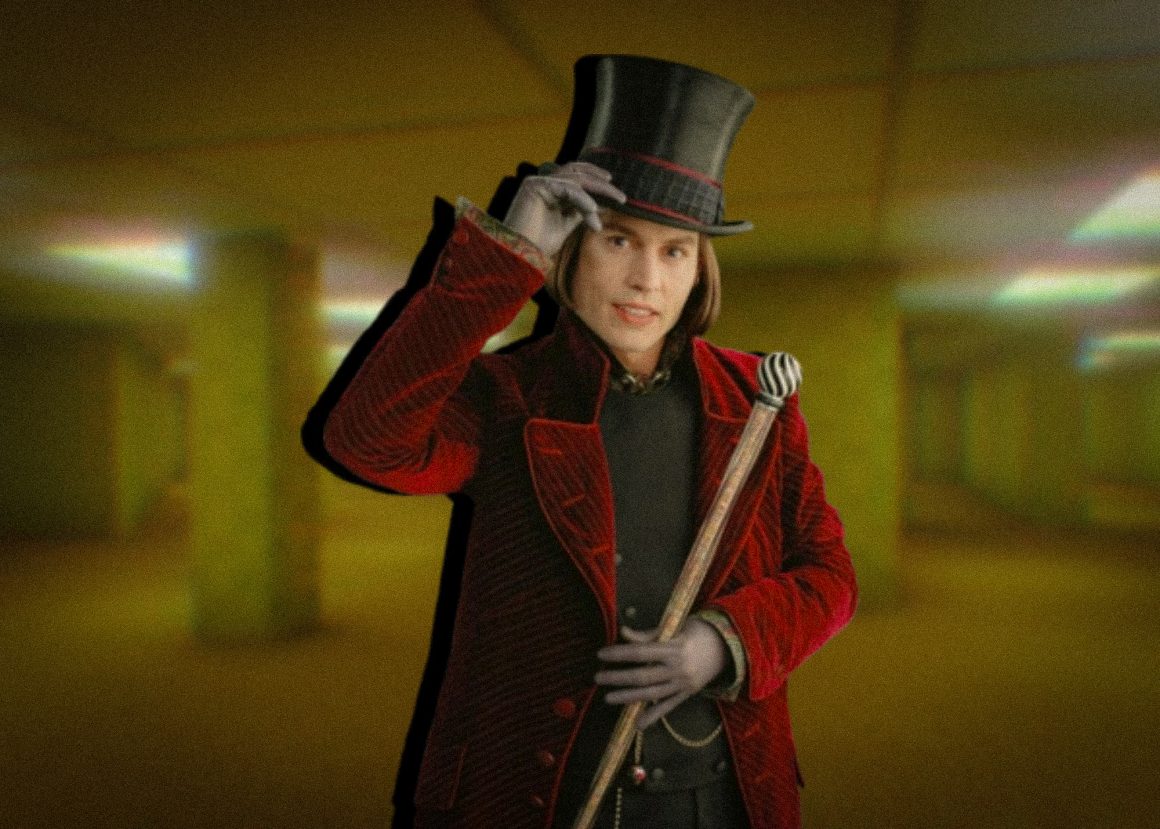
Artistry vs. Algorithm: The Willy Wonka Experience and AI Ethics
By Josie Simon, May 1, 2024—
The Willy Wonka Experience in Glasgow was marketed with dazzling visuals of edible gardens and candied wonderlands, offering an immersive event inspired by Roald Dahl’s beloved novel. Families eagerly bought tickets priced at around $60 each, excited to interact with Oompa Loompas and witness a real-life chocolate river true to the story.
However, when attendees arrived, they discovered a dimly lit, sparsely decorated warehouse space that was a far cry from the vibrant, whimsical factory world advertised. Instead of the giant mushrooms, candy canes and chocolate fountains depicted in the promotional materials, attendees were given only two jellybeans each and a half cup of lemonade.
The event failed to deliver on its promise of a “world of pure imagination,” to say the least.
At the heart of this bait-and-switch was the organizers’ unethical use of artificial intelligence (AI) to manufacture a fictional Wonka-inspired world from scratch—not just generating misleading visuals but potentially fabricating the entire narrative advertised to attendees. This brazen deception exposed ethical vulnerabilities surrounding AI’s increasing role in creative fields that desperately need addressing.
Further emphasizing the concerns raised by the Willy Wonka Experience is the issue of how AI models intersect with intellectual property from human artists during their training. Popular image generation tools ingest massive datasets containing millions of copyrighted artworks across various mediums. While recreating content is technologically impressive, it violates artists’ IP rights and consent.
By ingesting these datasets indiscriminately, AI companies strip artists of control over how their proprietary works are repurposed or reinterpreted. AI firms could potentially capitalize on an artist’s entire portfolio, with no ability for creators to opt-out or get credited.
Furthermore, the “black box” nature of how AI ingests and transforms artworks lacks transparency on which specific works are appropriated. This undermines the personal experiences and creative decision-making imbued by artists into their original pieces. The resulting AI-generated content may mimic aesthetics but lacks the fuller human narratives that give great art its cultural resonance.
As AI imagery becomes indistinguishable from human artistry, it enables unrestrained replication of unique styles without permission or compensation. This threatens to cannibalize the commercial viability of human creativity across disciplines.
Compounding these concerns is the potential for AI to be weaponized to generate intentionally deceptive content and erode public trust. With the ability to create highly realistic visuals and narratives from scratch, bad actors could use AI to manufacture fictional events, spread misinformation campaigns, or perpetrate sophisticated hoaxes and scams.
Without proper safeguards, these capabilities pose new challenges in combating fraud and maintaining integrity in digital media and online information ecosystems. As the Wonka fiasco demonstrated, the power to conjure make-believe realities can easily cross ethical lines when prioritizing profits over transparency and truth.
Ultimately, the Willy Wonka Experience highlighted the ethical concerns arising as generative AI becomes more prevalent in creative industries. To uphold human artistry while benefiting from AI innovation, we urgently need governance mandating artist consent, IP protections, transparency into training data sources, and creator compensation frameworks—otherwise, unrestrained technological disruption risks overshadowing the cultural and economic worth of human artistic expression.
This article is a part of our Opinions section and does not necessarily reflect the views of the Gauntlet editorial board.
